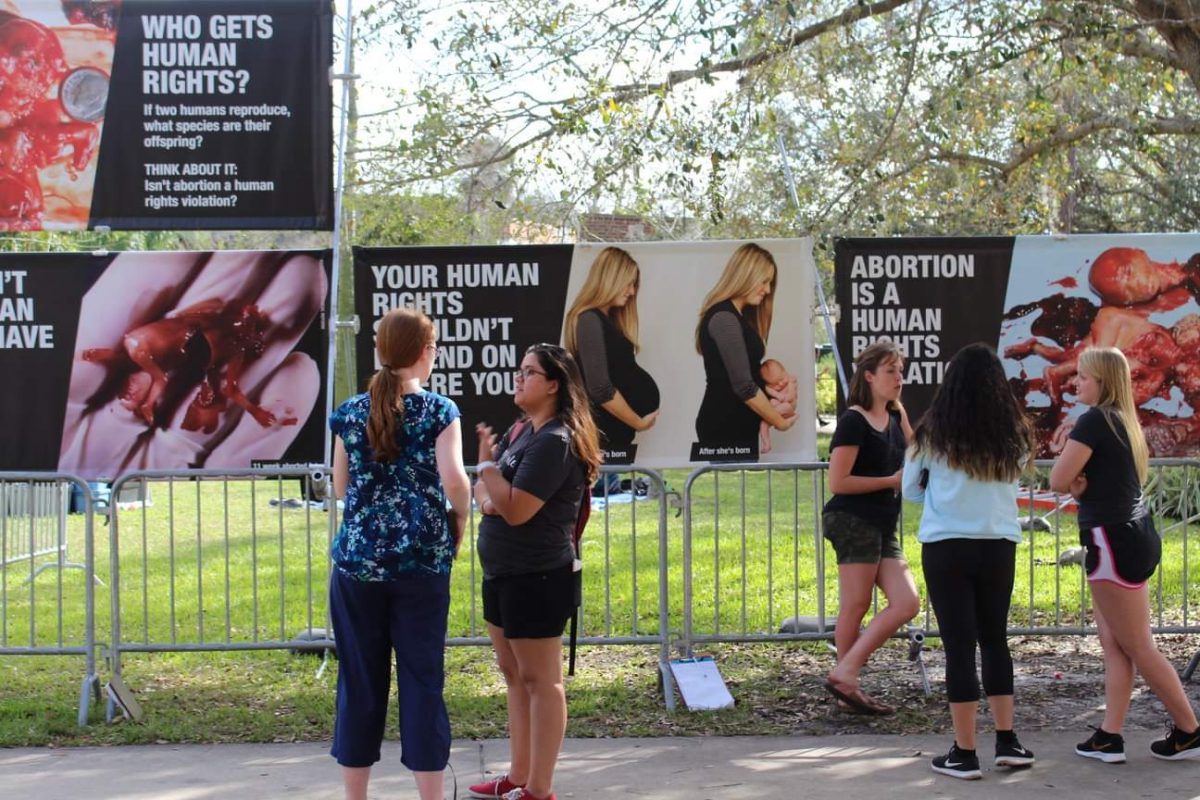
It is a question that you will be asked in nearly every conversation about abortion. What about when a pregnancy has resulted from a heinous act of violence? What about pregnancy in the case of sexual assault? Abortion supporters often ask this question in a hypothetical sense, and we should be able to provide a compassionate and logical answer about why we need to protect both the mother and the baby. Some people, however, are not thinking of a hypothetical situation, but instead of an all-too-real memory.
I remember speaking with Alex* some time ago during a college “Choice” Chain. She disclosed her experience at the very beginning of our conversation: “I get that you guys are pro-life and stuff, but what about rape? I was raped when I was a teenager. Do you think that even in situations like mine, women still shouldn’t have abortions?”
When someone discloses a traumatic experience, there is no blueprint for the “perfect” response. I think that we can, however, take guidance from authors Mary Schaller & John Crilly. In their book The 9 Arts of Spiritual Conversations, they write, “Asking questions from genuine interest builds connection. Connection builds trust. Trust is the bridge that can bear the weight of truth.”
The first thing that I said to Alex was, “I’m so sorry that that happened to you. I want to answer your question but first, I just have a question for you. Are you safe? Is the person who hurt you still in your life?” Alex told me that the assault had happened a few years ago, and the perpetrator was thankfully no longer in her life. (If the assault had been more recent, it may have also been appropriate to ask her if she had reported the assault, or wanted to.) I asked her if she had people in her life who were supporting her in her healing journey, and she mentioned that there were people such as her mom who were helping her.
I continued asking questions as gently as I could, and I focused on really listening to Alex. She shared her story of being sexually abused in high school, and the eating disorder she had developed as a result of trying to cope with her trauma. I affirmed her value and emphasized that what had happened to her was not okay.
At one point she said to me, “What about women who are walking by who may have had abortions? How do you think these photos would make them feel?” I replied to her, “I agree with you that there may be women walking by right now who have had abortions, and seeing these photos would be really difficult for them. But the reason we are here is not to condemn people for the choices they’ve made in the past. We are here to offer information to help people make better choices in the future.” I pointed down at my sign at one point and said to her, “I refuse to believe that this is the best we can do for women and their children.”
We continued talking and a little while later she said to me, “I know that you’re not here to judge women who’ve had abortions.” She then disclosed to me that she had become pregnant as a result of the assault, and had had an abortion.
Again, I asked her gentle questions about her abortion and what she thought about it now. I told her how sorry I was for everything she had gone through. We found common ground by agreeing that society needed to do more to support women and their children.
Alex told me that she didn’t like to think about the abortion much because it was in the past, and she didn’t want to have regrets about the past. I then shared the Choice42 website with her and told her about the groups that exist for people who seek healing after abortion. “Maybe this resource won’t be useful to you today or tomorrow,” I said to her, “but maybe you could find that useful sometime in the future.”
Alex agreed with me and accepted the resource card, and she asked me more questions about why we were against abortion. And I didn’t shy away from those questions. I continued to share the truth with her about the humanity of the pre-born and the inhumanity of abortion. Because as my friend Devorah has often said, truth without love is ineffective — but love without truth is a lie. We need to share both.
By the end of our long conversation, Alex still identified as pro-choice. However, she had seen the truth, had heard the truth, and had heard that there was the possibility of healing and forgiveness after abortion. And I was so grateful when she said to me, “You’re starting to sway me. You’ve definitely opened my mind. When should a human being get human rights? That’s not something I’d ever thought about before.”
*Name changed to protect privacy
